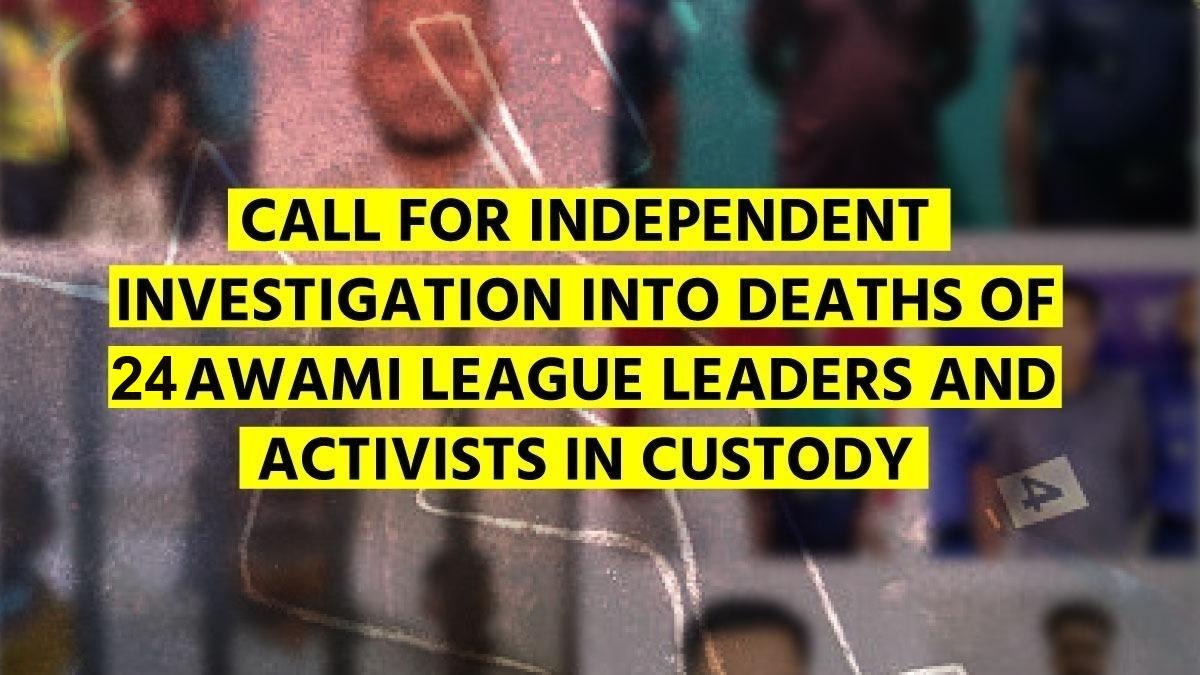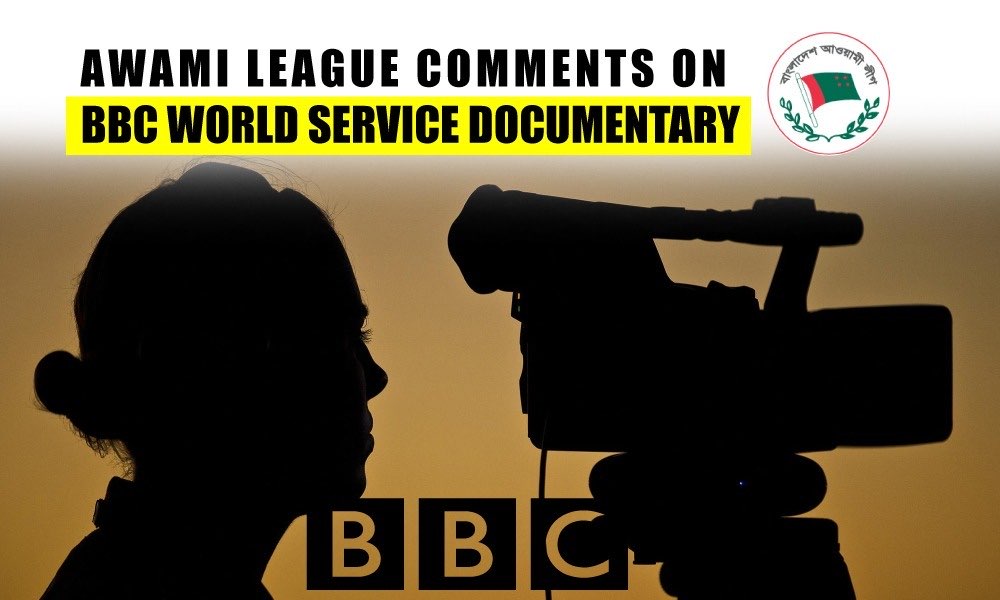3462
Published on December 26, 2022Tonmoy Ahmed:
The Awami League government has successfully implemented the 2008 election manifesto for making Bangladesh a middle-income and digital country by 2021. During this period, the country's people have changed their fate using the technology and infrastructural opportunities created by the government aiming to eliminate hunger and poverty.
At the same time, the Awami League government is working towards creating a smart future generation by utilizing digital facilities. People's leader Sheikh Hasina has laid the basic foundation to implement this far-reaching plan through the education and employment of half the population of the country.
A knowledge-based society with access to information and technology and economic emancipation is the prerequisite for building a smart generation, and it is made possible when a generation is raised by educated, self-reliant and hard-working mothers. The dream of a Smart Bangladesh will come true if the children of self-reliant and hard-working women, with a modern education and free from extremism, are raised from an early age as creative and patriotic citizens with humanitarian values.
Digital Bangladesh, which once seemed impossible, is a reality now. Similarly, achieving a Smart Bangladesh is an ongoing process. The plan to achieve this goal by taking a generation through psychological evolution is bold and revolutionary. And there is no alternative to building a Smart Bangladesh for sustainable development of the state in future.
Therefore, in her speech marking 'Digital Bangladesh Day-2022' on December 12, Bangabandhu's daughter, Prime Minister Sheikh Hasina, said that the Awami League government is working to transform the country from “Digital” to “Smart Bangladesh” by 2041. She further said, “the government is working to successfully implement the four foundations of building 'Smart Bangladesh'.” These are: Smart Citizens, smart economy, smart government, and smart society.
In Smart Bangladesh, everything will rely on technology; citizens will be skilled in using technology and the entire economy will be managed by technology. Massive efforts have already been undertaken to make the government and society smart in this regard.
Earlier, the Honorable Prime Minister Sheikh Hasina highlighted the details of developing Bangladesh as a sustainable and developed state in a long article titled “Striving to realize the ideals of my father.” She underlined three special steps as a journey to materialize today's digital Bangladesh by freeing people from the grip of illiteracy, poverty, dictatorship, terrorism, and extremism.
These include implementing Bangabandhu's ideals, ensuring the seven basic needs of the people through tireless efforts and preparing the country to make the standard of living of future generations suitable for the modern world.
Sheikh Hasina is translating Bangabandhu's vision into a 'Smart Bangladesh' program
Awami League leader Sheikh Hasina wrote in her essay, “my knowledge and understanding of my father's thoughts and plans -- stemming from his lifetime dedication to and thinking for the country -- have helped me translate his ideas into concrete programs. The guiding principles involve being steadfast, being empathetic to the needs of the downtrodden, and being systematic about my actions.”
So, let's try to understand how Bangabandhu wanted to make Bangladesh a smart state after independence in a world without the internet. It should be noted that Bangabandhu laid the foundation for the threshold of today's smart generation, on which Bangladesh is embarking.
At the beginning of rebuilding war-torn Bangladesh after independence, he took the initiative to make the villages self-reliant as 80% of the population lived in rural areas. The Father of the Nation always fought for educating women and the new generation in science and technology, providing economic freedom based on equality for people of all levels, and the establishment of a non-communal social system in a humane state.
In this regard, Awami League President Sheikh Hasina herself says “he [Bangabandhu] would often discuss with us his thoughts and plans on ways to make each village self-sufficient by further increasing agricultural output. He visualized industrialization, road-building, the dredging of waterways, the expansion of railways, and so forth. He imagined good roads leading to every village, with rice fields on one side and farmers' settlements, schools, colleges, railway lines, hospitals, religious institutions, and all the social elements of life on the other.”
Bangabandhu's daughter, Sheikh Hasina, also got inspiration from Bangabandhu's thoughts to build a ‘Smart Bangladesh' in today's digital era. In this regard, she further writes, “my father's dream was to build an independent Bangladesh that would facilitate a better life for all the people in the country and change their destiny. The important point is that he was always thinking and believed that conditions could be improved through innovations. His thoughts and beliefs became my inspiration and education.”
That is why the Awami League government has given equal importance to innovation in agriculture, health and technology sectors along with achieving the goal of Digital Bangladesh. As a result, the production system of the country has reached a new height through the invention of climate and salt-tolerant rice variants with more nutritious values, new varieties of fish, fruits, and perennial vegetables to meet the needs of people of all levels.
Entrepreneurship is growing with the maximum utilization of information technology. Even a small farmer in the village can now keep track of the whole world, a non-discriminatory participatory society is gradually evolving.
How the Awami League is approaching 'Smart Bangladesh'
After forming the government in 2009, Prime Minister Sheikh Hasina took the initiative to fulfill the seven goals for changing the fate of the people as a part of materializing the ideology of the Founder of Bangladesh and Father of the Nation, Bangabandhu Sheikh Mujibur Rahman. Those goals are: Achieving self-sufficiency in agriculture and food and ensuring nutrition for all; health care for all; universal education; shelter for the helpless and poor; advancement of women and backward communities; ensuring a prosperous future for children; and increasing economic empowerment of the masses.
As the Awami League government gives the highest priority and incentives to achieve these goals for people, Bangladesh has tremendously changed in the last decade.
Developed roads in remote villages, four and six-lane highways across the country, bridges, tunnels and many infrastructures have brought revolutionary changes in the communication system. As a result, about 43% of the country's people are particularly benefiting from the rural economy. Uninterrupted electricity and the internet with access to information technology education have created new jobs and boosted the economy. The financial inclusion of ordinary people has increased due to the introduction of digital money transaction systems through mobile phones. Bangladesh has even surprised the world by tackling the Covid-19 pandemic and sending the Bangabandhu satellite into space. The lifestyles and outlooks of people in Bangladesh now are completely different from before 2009.
The Awami League government is giving various stipends and scholarships to 2.3 crore students from primary to higher education, so that the new generation can make use of this digital opportunity and make themselves skilled. Here, women, consisting of half of the total population, get special priority.
After independence, Bangabandhu took the initiative to initiate compulsory education, give stipends and preserve quotas in government jobs to educate and make women, who were lagging behind the mainstream of society, self-reliant. In that continuity, the Awami League government has tried its best to create opportunities for women through different policies.
The new generation that will emerge from the hands of these educated and self-reliant women, is likely to grow up with modern information technology education from childhood. The Awami League government has already completed the basic tasks required to build a smart state with humanity, values, and economic prosperity under the special supervision of the party chief Sheikh Hasina. That's why the honourable Prime Minister herself said in her writing, “it is the indomitable spirit of Sheikh Mujibur Rahman that drives us forward, and we dare not rest till we achieve all his dreams.”
A sustainable state with a humanitarian and efficient nation
Bangladesh Awami League was founded with the aim of liberating the Bengali nation from thousands of years of exploitation and oppression. It is the party that has been able to establish Bangladesh as an independent state following the two-decade-long relentless struggle and the sacrifices of innumerable leaders and activists.
After the vigorous movement to protect the Bengali language and culture and achieve independence, the party under the leadership of Bangabandhu continued its struggle to bring back democracy from the dictators, to keep the Bengali nation free from militancy and extremism and to uphold Bangladesh as a proud nation with self-esteem in the world.
Awami League, the largest party in the sub-continent, has sacrificed many of its senior leaders and activists for the establishment of Bangladesh, which has made the ties between this party and the country inseparable. Millions of Awami League activists are committed to their patriotism and humanitarian role despite being subjected to torture and persecution in uncounted times.
While Bangabandhu established Bangladesh as an independent country, and his daughter, the people's leader Sheikh Hasina, has made it a digital state amid thousands of obstacles. As she has started the ideological journey of making Bangladesh a sustainable state and the Bengali nation a smart nation, every patriotic Bengali will surely play the maximum role in materializing this ideal for their own sake in future.
Joy Bangla, Joy Bangabandhu.
Writer is Coordinator, Centre for Research and Information (CRI). Member Secretary, Cyber Monitoring Cell and Member, Science and Technology Affairs Sub-Committee, Bangladesh Awami League.














